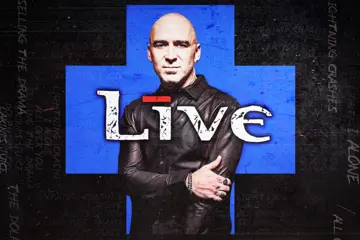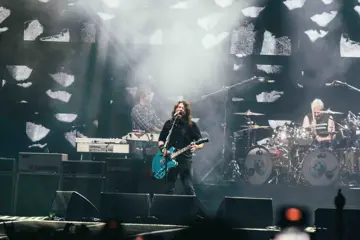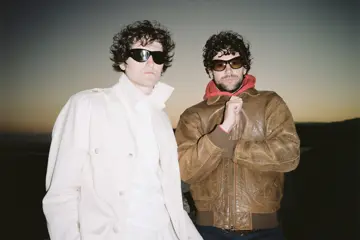"I like to think that I knew what I was doing, but I was scared shitless," says Stephen Page with a laugh.
From someone who has been at the helm of the country's premier Indigenous arts organisation, Bangarra Dance Theatre, for 24 years, it's an admission you would not expect. However, even for a man who has created countless dance works, making a feature film represents a journey into the artistic unknown, not the least because film and live theatre are such different beasts.
When Page's cinematic version of his 2000 stage work Spear illuminates the screen at the Brisbane Asia Pacific Film Festival, it will represent a cinematic homecoming for Queensland's most acclaimed Indigenous arts powerhouse. Beyond the fanfare though, Spear, like all First Nations people in this country, straddles two worlds.
"These are young males who are dealing with sexuality, violence, substance abuse, mental abuse and a whole array of issues."
Page explains the story of Spear as the struggle of Indigenous men "to have a foot in both worlds and to try and see how they can just surf the balance of that for the rest of their lives." In this it is typical Bangarra. "Black social theatre," as its creator says.
The leap from theatre to cinema perhaps allows the work's deeper strands to reach out beyond Bangarra's core dance and Indigenous demographic, touching upon notions of confused manhood. As many have observed, the very idea of manhood has been lost and/or subverted; a phenomena keenly felt in the black community.
Don't miss a beat with our FREE daily newsletter
"If we lived a pure men's business, clear minded life, I just don't think you would be able to identify the challenges that lie ahead," Page muses. "I just hope there's a real resurgence of men coming together to ask those questions about what does it mean to be a man in the 21st century."
With Spear, these questions are especially poignant for Stephen Page. His son Hunter Page-Lochard plays (dances) the main role, and indeed over his quarter century at Bangarra he has seen many young men come and go. "These are young males who are dealing with sexuality, violence, substance abuse, mental abuse and a whole array of issues," he elaborates. "Y'know, the film is stylised, so one of my questions was, 'Am I covering up the reality of the situation here by putting them in this stylised film?'"
The fact that it made its world premiere at Toronto Film Festival and its Australian debut at the Adelaide Film Festival last month is testament to the effectiveness of its vision. It remains, at its core, a dance work with sparse dialogue and very little in the way of popcorn cinema fare. "It's probably even more minimal, even more of an internal narrative," Page declares. "Y'know, because we would go in closer with the frame."
Translating the intuitive flow of live dance into the stop/start world of film is notoriously difficult. For Stephen Page the process began with clarity of purpose. "I tried to be as honest as I am in the making of a dance theatre piece. So, even though you're working in the medium of film and the operation, or the creative process is a little different, the heart of the work, the essence of it, is unchanged."
Anyone familiar with Bangarra would recognise this as pivotal to Page's approach. Spear the film will doubtless hit the very same marks as it would on stage.















